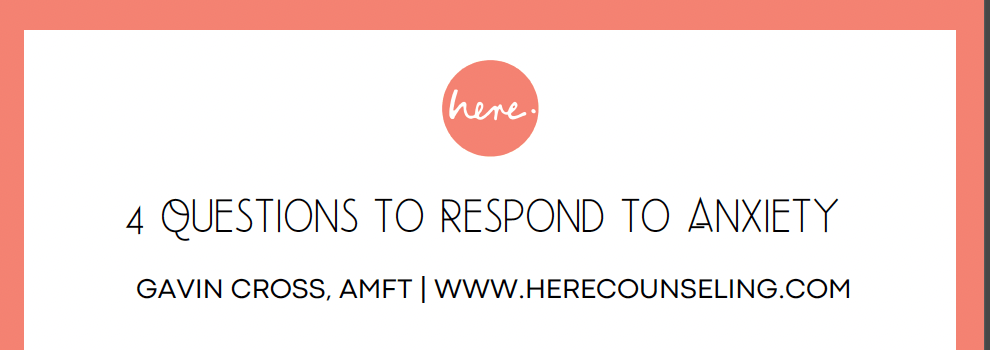The bad apology: We’ve all heard one. We’ve all used one. And when we do it feels so gross.
“God, I’m SORRY!”
“I don’t know what I did but whatever it is I apologize.”
“I guess I’m sorry that you think I wasn’t listening.”
“Look, I said I’m sorry. Why’re you still angry?
No. It doesn’t work. It doesn’t help. Actually, a bad apology usually makes the person we’re apologizing to even more upset. Because it isn’t really an apology.
How to Tell When an Apology Isn’t Sincere
It can be hard to know when someone really means “I’m sorry” — especially when you’re emotionally raw. But learning to spot the signs of a hollow apology can protect your peace, and help you decide how (or whether) to move forward with someone.
Here are a few signals that the apology you’re hearing might not be coming from a place of true remorse:
1. “If” and “but” apologies
“If you felt that way” or “I’m sorry, but I was stressed” aren’t real apologies. They dodge responsibility and put the burden on you for having feelings. That’s not repair — that’s evasion.
2. Blame gets redirected
When an apology slips in a line like “You made me do it,” it’s not about healing — it’s about shifting guilt. Real apologies stay with the impact, not the excuse.
3. It’s vague
A half-apology might say “I messed up” but skip what exactly was done wrong. If someone can’t name their behavior, it’s hard to believe they really understand it.
4. The focus is on their intentions, not your hurt
“I didn’t mean to” might be true — but it doesn’t make the hurt go away. If someone is more focused on how misunderstood they feel than how you feel, the apology isn’t landing.5. The pattern repeats
If you keep hearing “I’m sorry” but nothing ever changes, that’s not growth — that’s a loop. A meaningful apology includes effort. Without that, the words start to feel empty.
A bad apology is a demand. It’s a shield. It’s selfish.
A bad apology translates to:
“Stop feeling angry. Stop being sad. You being upset means I’m a bad person. I don’t wanna hear that. I said I’m sorry so I can be done with this.”
A bad apology takes care of ourselves. It denies responsibility because acknowledging we did something wrong is uncomfortable.
But all of this misses the whole point of an apology.
A good apology is supposed to take care of the person who’s hurt. It’s a gift of your empathy and understanding.
A good apology requires you to sit for a moment in the head of the person across from you and set aside your own discomfort to take care of them.
A good apology provides resolution so that both of you get to feel genuinely better at the end.
The Cost of a Bad Apology
It’s not just that a bad apology doesn’t help — it actually makes things worse. It creates distance instead of closeness. It turns vulnerability into frustration. And over time, it teaches the other person that bringing up hurt feelings isn’t safe or worth it.
When that happens often enough, people stop sharing what they feel. The relationship moves into quiet resentment, emotional shutdown, or blowups that seem to come out of nowhere.
Learning how to apologize well isn’t about being perfect. It’s about keeping the connection open, even in moments of conflict. And that’s what makes a relationship stronger.
Why Are Bad Apologies So Common?
We don’t learn how to apologize well. Most of us grow up seeing apologies used as damage control — a way to end the conversation, not repair the relationship. We see apologies as a transaction: “Say the words, and let’s move on.”
But real apologies require emotional presence, not just polite language. They ask us to sit in discomfort for a minute and consider someone else’s pain without immediately managing our own. That’s a skill many people never learned.
Understanding why bad apologies happen doesn’t excuse them. But it helps us shift from shame to responsibility. And it opens the door to doing things differently.
So if you want to practice a good apology, here are the steps:
Calm yourself.
Criticism often feels deeply personal and emotionally charged. When someone tells you that you did something that hurt or offends them, you’re likely going to feel a sharp pang of adrenaline. Don’t counterattack. Hold back your defensiveness. Don’t argue. Don’t explain why you did what you did. In a good apology, those are inside thoughts. Breathe. Remind yourself that you aren’t being attacked, so you don’t need to defend.
Listen.
You have to listen carefully to what the person is upset about. Maybe even repeat back to them what you hear them saying. Then with genuine curiosity and without anger, ask them if you understood. Allow them to correct you and repeat this until you understand clearly.
“Oh, you’re saying that being on the phone when I got home today felt like I was ignoring you. Is that right?”
“…and I wasn’t paying attention to the questions you were asking me. Ok.”
Reflect.
Pause and take a moment to think about how they felt. Really consider the situation from their perspective; then express why their reaction makes sense to you. If it still doesn’t make sense, go back to asking questions (with curiosity and without anger) until it does.
“That makes sense. I can see why if I’m literally not responding it feels like I was ignoring you.”
Take Responsibility.
Accept that you did something wrong. Say this clearly to the other person without trying to soften the “wrongness” of what you did or shift the blame. They will see right through that.
“You’re right. I wasn’t really paying attention today. It was inconsiderate and thoughtless, and I know you like for us to talk when I get home.”
Apologize Directly.
Say the damn words.
“I’m sorry I wasn’t paying attention. I’m sorry I made you feel ignored. I don’t ever want you to think I don’t care about you.”
Take Action.
Identify what you would like to do differently and then do it. And if in the moment, you’re not sure how to fix the problem, you can say that too, as long as you also verbally take the responsibility to think about it and come up with something later.
“Tomorrow I’ll make sure to set down my phone when I come in.”
Check-in.
The point of a good apology is to take care of the person you love. Circle back to how they feel. Gently ask them if they feel better. Keep in mind that they might not feel better, but even if it’s not in this moment, a good apology can lead to emotional resolution.
“I love you. How’re you feeling? ”
When You’re Not Ready to Apologize
Sometimes you’re still hurt, confused, or overwhelmed yourself. And trying to force out an apology when you’re not ready can feel fake — or worse, resentful.
If you’re not ready, it’s okay to say that. But don’t leave the other person hanging. You can say something like:
“I know this mattered to you, and I want to talk about it. I just need a little time to sort through my own feelings so I can be present with you.”
A good apology doesn’t have to be immediate. It has to be sincere. Take the time you need, but stay connected. Let them know you’re coming back to the conversation.
What to Do When the Apology Doesn’t Feel Genuine
You’ve heard the words, but something still feels… off. The apology doesn’t sit right, and you’re left wondering what to do with that discomfort.
You’re not overreacting. And you don’t have to ignore it.
Here’s what you can try:
Speak honestly about how it landed
Use “I” statements to reflect how you feel without escalating things. Try:
“I appreciate you trying to make things right, but the apology didn’t feel like it addressed what happened.”
Ask for clarity
Sometimes, people are well-meaning but unskilled. You can invite them to go deeper:
“Can you help me understand exactly what you’re apologizing for?”
Name what you need
If you’re ready to move forward but need something specific, say so. Maybe it’s space. Maybe it’s a change in behavior. Either way, you deserve to name your boundaries.
Protect your emotional space
You don’t owe continued access to someone who consistently disregards your feelings — even if they say “sorry.” You can love someone and still choose distance when needed.
Decide what repair looks like for you
Genuine repair takes time, effort, and mutual investment. You get to choose what’s best for your well-being, whether that’s reconnection or release.
Calm yourself. Listen. Reflect. Take Responsibility. Apologize Directly. Take Action. Check-in.
A good apology helps. It does what apologies are supposed to do. It takes care of someone who’s hurt.
It’s important to remember that good apologies are necessary but they’re not a silver bullet. All of the above assumes that the person you’re apologizing to is emotionally aware and is acting in good faith. It assumes that they know their needs and are being direct. Without those conditions met, even the best apology might go south.
There are so many things that get in the way of peace in our relationships. If you find yourself stuck, that even your good apologies don’t seem to be moving you toward a place of resolution, please reach out. That’s where therapy can help.
But to start with it’s important to step back from the bad apologies, step back from defending yourself, and in a moment of vulnerability choose to be loving instead.
Therapy Can Help You Practice Apologizing Differently
Apologizing isn’t just about words — it’s about emotional regulation, vulnerability, empathy, and communication patterns. These are deep skills, and if you didn’t grow up learning them, it’s not your fault. But you can learn them now.
In therapy, we help you slow down the moment, notice what’s happening underneath your reactions, and build a new way of responding — one that helps both people feel seen and safe.
If conflict keeps repeating itself in your relationships — even when you’re trying to do the right thing — we’re here to help you break that pattern and build connection instead.

















